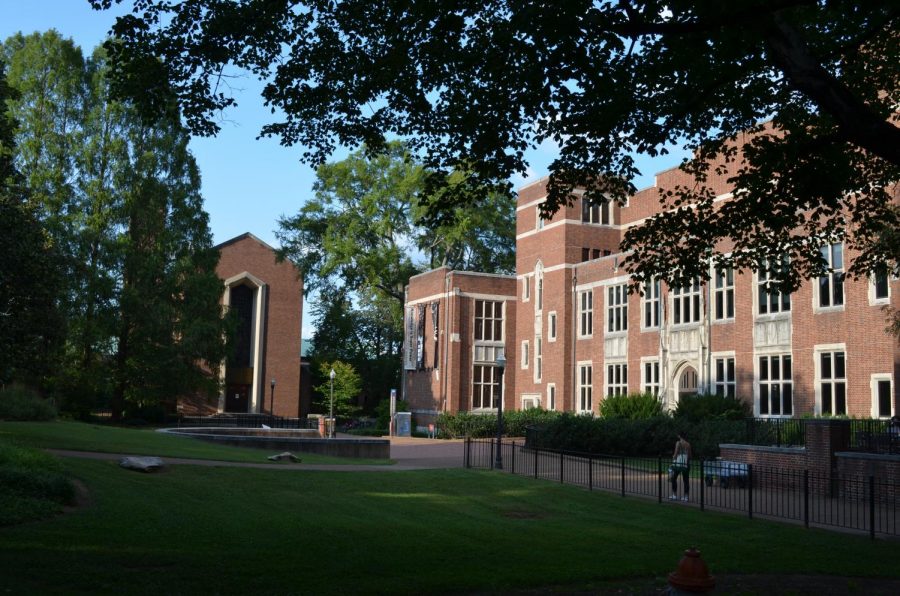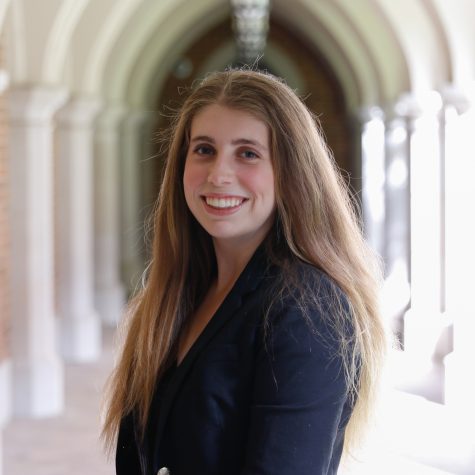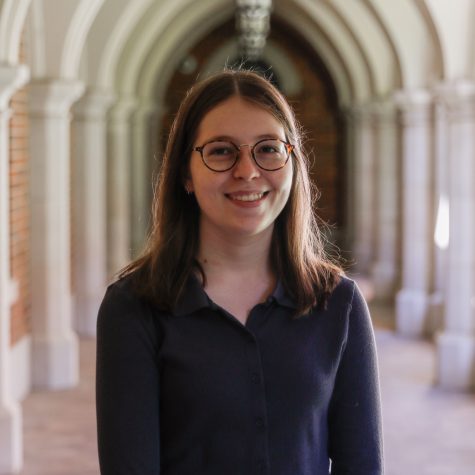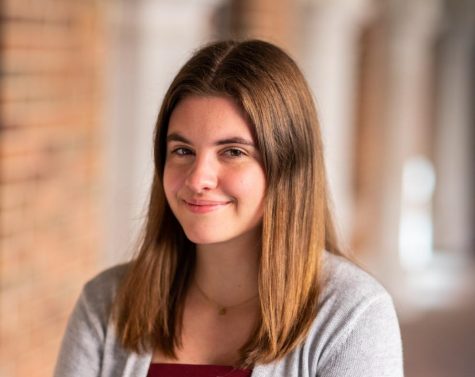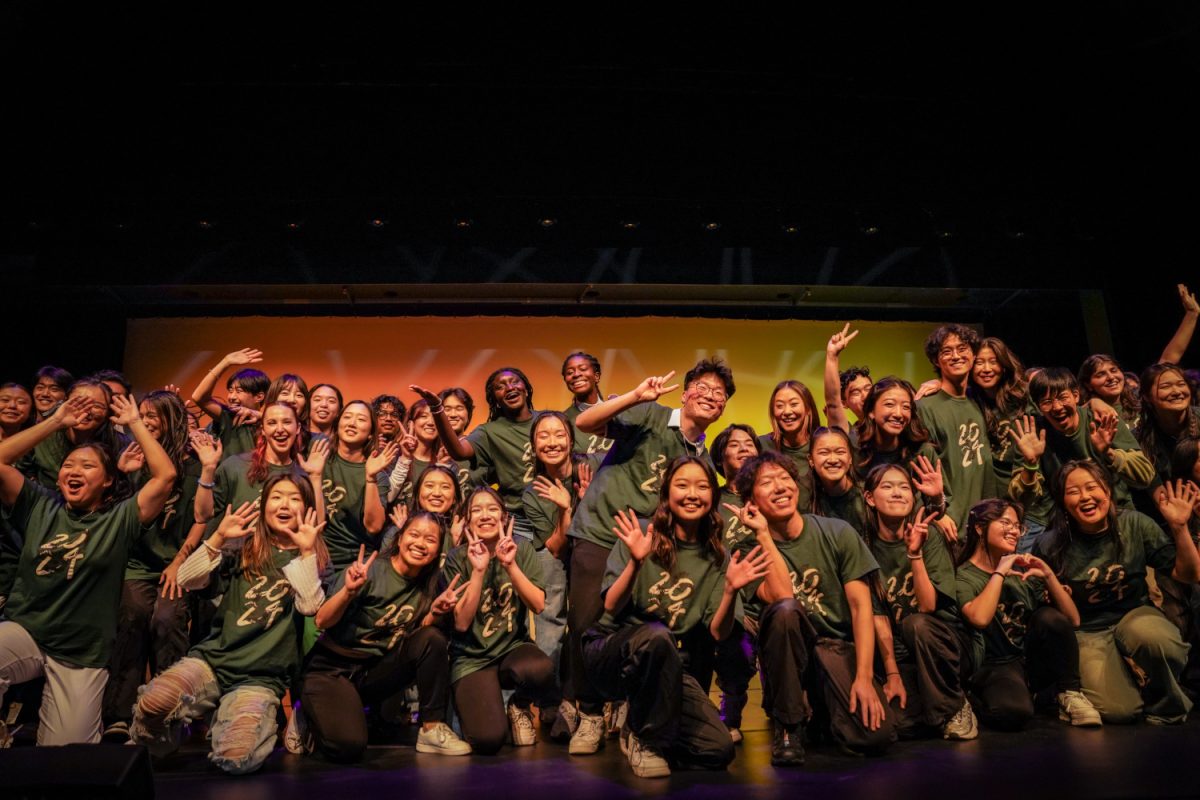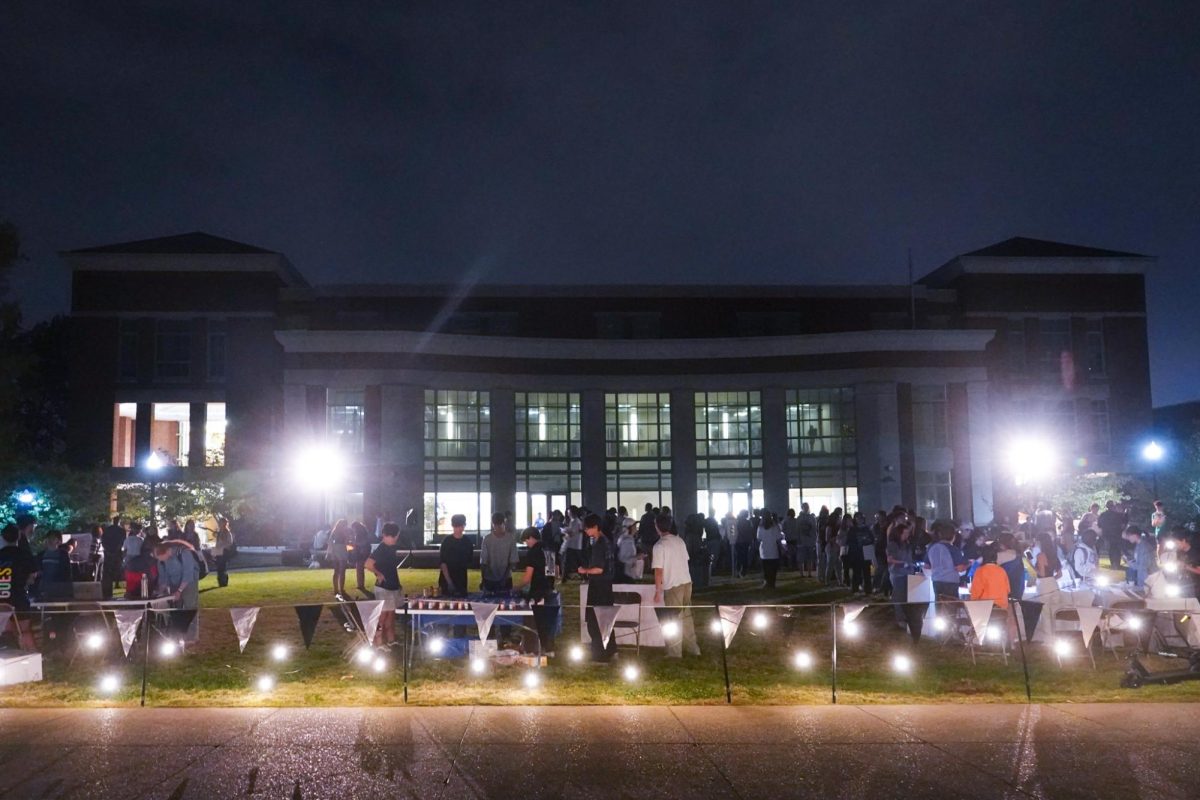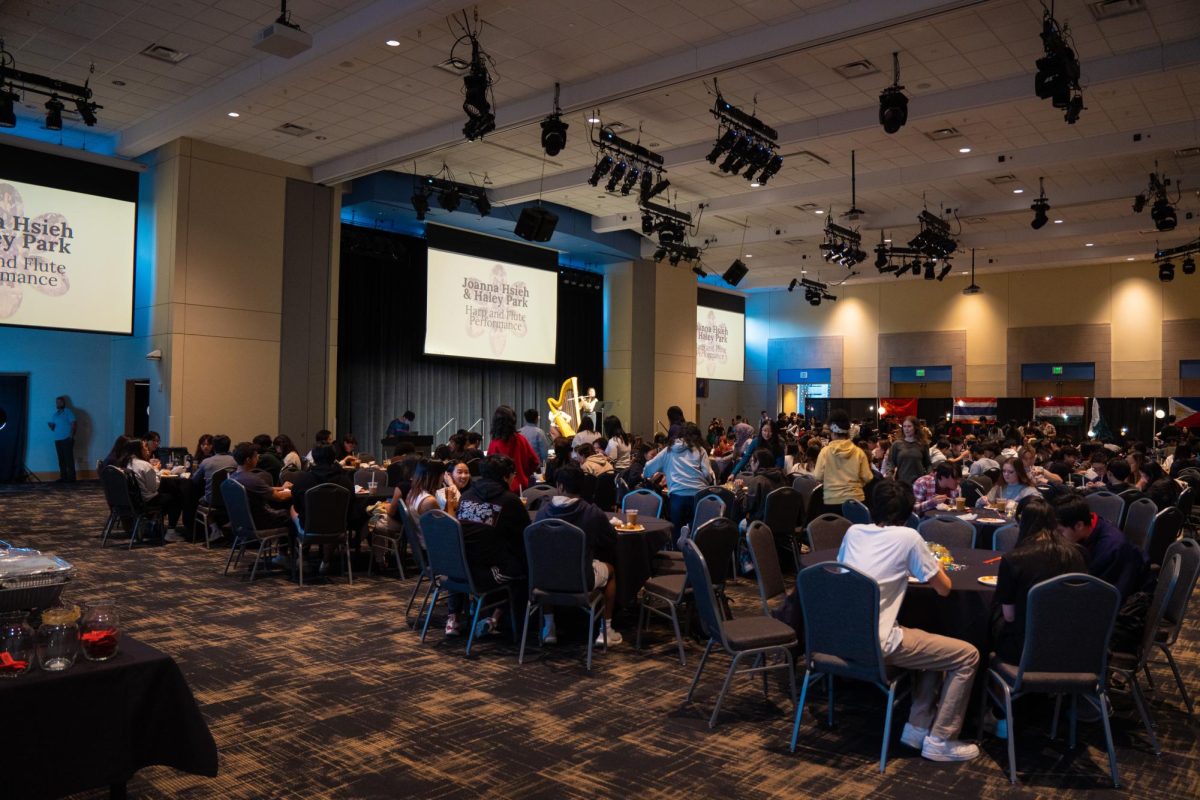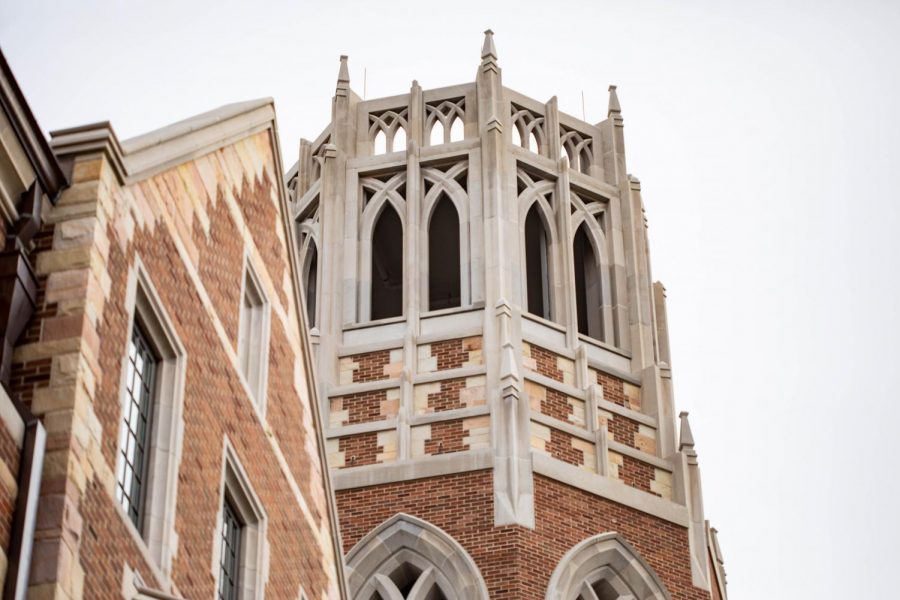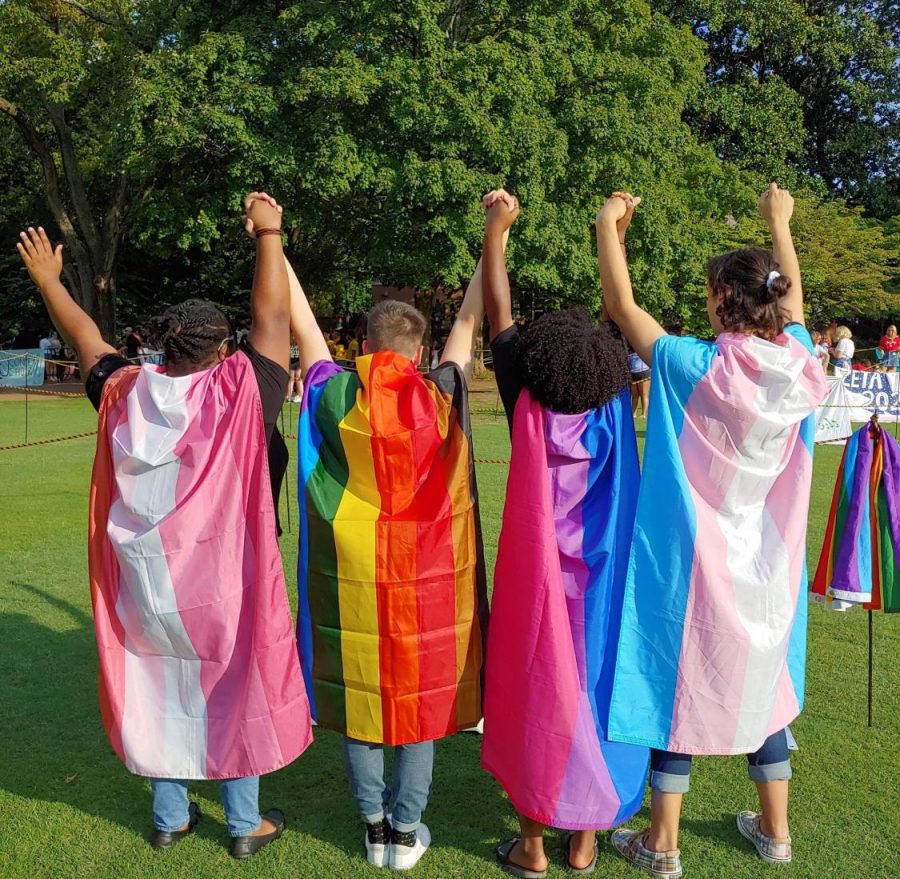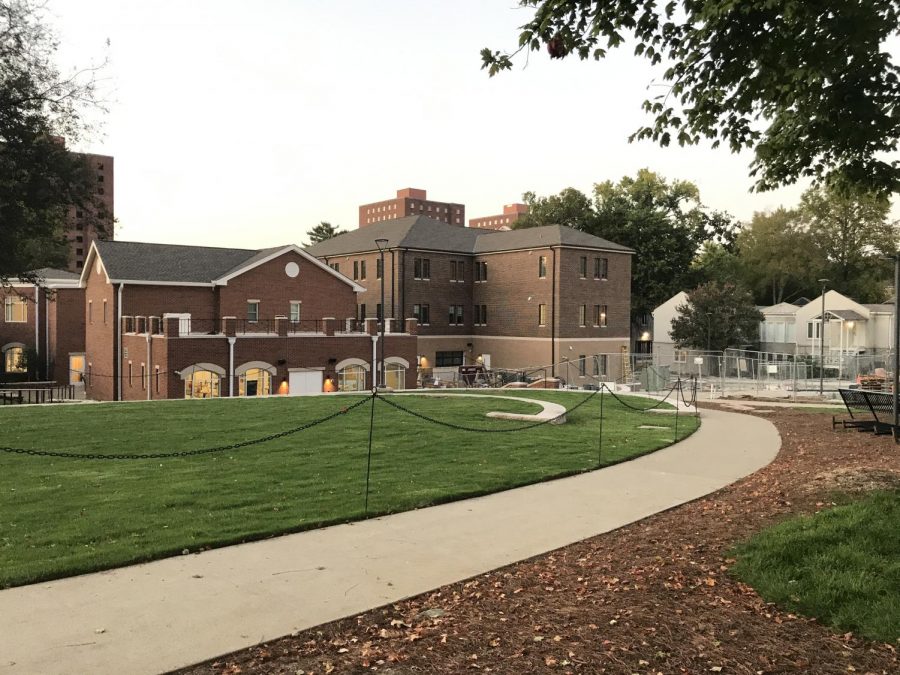Editor’s Note: This article has been updated to include statements sent to The Hustler by a University Counseling Center (UCC) representative as well as UCC resources created with Asian American and Pacific Islander (AAPI) and international students in mind. A correction to the full name of the University Counseling Center has also been made.
In a unanimous vote on Wednesday, March 24, the Vanderbilt Student Government (VSG) Senate called on the Vanderbilt administration to implement an Asian American studies program, provide faculty lines for Asian Studies and increase course offerings on Asian American diaspora.
Proposed by VSG senate deputy speaker Syed Rahman and co-sponsored by the Asian American Student Association (AASA) and Vanderbilt Lambda, Resolution S: 20-21-25 comes in the wake of last week’s shootings that left six women of Asian descent dead in Atlanta, Georgia.
No debate occurred over the bill in the March 24 Senate meeting, and the Senate immediately moved into voting. The resolution is co-sponsored by all 27 voting members of the VSG senate.
The bill argues that the lack of an Asian American and Asian diaspora studies program at Vanderbilt hinders the development of authentic allyship among underrepresented groups. It also calls for faculty lines and more Asian American faculty hires.
Vanderbilt is one of the few leading academic institutions among its peers without a dedicated program related to Asian Americans or the Asian diaspora. Undergraduates, graduate students and faculty expressed strong support for an Asian American studies program. Elizabeth Lee (B.E. ‘18) shared her experience with the University Counseling Center (UCC).
Lee said in a testimonial for the Vanderbilt AsAm Studies Initiative, “I felt unheard, and my identity was not understood.”
In an email to The Hustler, Assistant Director for Community Engagement Ciera V. Scott and licensed psychologist for the UCC responded to Lee’s testimonial and the recent violence against the Asian and Asian American community.
“[The UCC wishes to honor] the experience of the VU student quoted within their article who reportedly accessed UCC services—and our concern that that was the student’s experience as they engaged UCC services,” Scott said. “We absolutely wish that their experience had felt more affirming and supportive.”
Scott highlighted currently available UCC services and support spaces that were created with AAPI students in mind, including but not limited to the UCC Asian/Asian American Student Support Workshop and, “noting the potential intersection between identifying as an AAPI student, and as an International student,” UCC Drop-In Consultation for International Students.
“We continue to practice cultural humility and continue to pursue intentional diversification of the UCC team to better meet the unique needs of our student population, as indicated on our UCC Staff Bio webpage,” Scott said.
Student-athlete Kaira Brown (’23) wrote about the inability to find Asian American courses to take for her critical race studies major.
“The erasure of Asian American experiences is so blatant in the Vanderbilt course catalog,” Brown said in a message/email to The Hustler. “Taking African American studies courses has been such an affirming experience for me, and Asian American students deserve the same.”
The bill has received support among Vanderbilt students, faculty and staff with endorsements from over 900 signatories and over 35 student organizations.
Asian American Studies Minor Petition
Vanderbilt students have created a petition calling for the creation of an Asian American studies department. As of publication, this petition has over 1,000 signatures from current students, faculty and staff, alumni, student organizations and non-Vanderbilt affiliated individuals.
“Vanderbilt must provide a space for Asian American history and issues within the curriculum and the institution, recognizing that the Asian diaspora is distinct from what has been the primary mission of our Asian Studies department,” the petition reads.
The petition cites Asian American studies programs at other schools, such as Cornell University, and states that the lack of an Asian American studies department “hinders the development of authentic allyship with other BIPOC communities.”
The petition specifically calls for the creation of an “Asian American diaspora studies center and program,” the hiring of “faculty with Asian American and Asian diaspora expertise,” and the development of “an Asian American network of undergraduates and graduate students, faculty, and alumni.”
Administration Round Table Discussion
On March 24, Vanderbilt’s senior administration hosted a Q&A session to discuss future support of the university’s Asian and Asian American community.
The session’s panelists included Dean of Students Mark Bandas, Vice Chancellor of Equity, Diversion and Inclusion André Churchwell, Director of the Provost’s Office for Inclusive Excellence Franklin Ellis and Vice Provost for Academic Advancement William Robinson. The discussion was moderated by senior and AASA Advocacy Chair Valerie Kim.
Kim began the Q&A by asking the panelists to describe how Vanderbilt has supported Asian and Asian American students in the past. Bandas answered by referring to McTyeire International House’s Chinese, Japanese and Korean halls and the Student Center for Social Justice and Identity (SCSJI). He added that Vanderbilt has frequently spoken out in support of its Asian and Asian American students. On March 17, Bandas, Churchwell and Robinson released a statement condemning anti-Asian violence in Atlanta.
“In recent years, the university has spoken out against efforts to limit international students’ ability to study in the United States,” Bandas said. “[It] has spoken out against rhetoric questioning Chinese students’ motives for studying at U.S. colleges and universities and has challenged the rise in anti-Asian violence and sentiments amidst the pandemic.”
Kim then asked how Vanderbilt plans to increase this support in the future. Churchwell responded, stating that it is the administration’s goal to increase engagement with students on relevant issues and to create more programming in support and celebration of Vanderbilt’s Asian and Asian American community. He added that the administration is working to bring more diversity into the Office of Student Care Coordination.
Ellis then added that the Office for Inclusive Excellence is creating identity initiatives, like SomosVU, for students identifying as Asian and Asian American.
“We are also creating a resource guide to look into resources to prevent and respond to anti-Asian behavior,” Ellis said.
Kim also asked panelists whether there are any plans to increase Asian and Asian American faculty and staff. Robinson said that the university is committed to inclusive hiring practices and increasing diversity. Robinson added that search committees are trained to eliminate hiring bias.
The panel then turned to a discussion of how the administration plans to support the initiative to bring an Asian American studies department to Vanderbilt. Robinson said that conversations regarding the creation of this department are or will be happening within the Asian Studies department, but that faculty will take student feedback into consideration.
“I think this is a great opportunity for AASA to be part of those discussions, to make sure the course program as designed is actually meeting the needs that you would want,” Robinson said.
Kim then inquired about the process the university’s offices follow when issuing statements about social justice issues. Per Bandas, responses are guided by the intricacies of the specific incident as well as the “university’s principles.”
“Vanderbilt condemns expressions of hate, bias and discrimination in all forms,” Bandas said. “We look at a number of factors such as the direct impact on the campus and the nature of the incident as we work together as a team to make determinations about communication.”
However, senior Hannah Hickman expressed disappointment over the administration’s initial lack of response to the March 16 shootings in Atlanta. Per Hickman, this motivated her to contact Vanderbilt via Instagram to ask them to release a statement. Hickman said that she encouraged other students to do the same and received a positive response from these students.
“It was definitely encouraging that there were enough people who were doing it to make a difference to Vanderbilt,” Hickman said. “It’s discouraging that it took us literally harassing them for them to decide maybe they should put out a statement about something that impacts so many students at our own university.”
While Hickman said she did not receive a response from Vanderbilt, the university did release a Mar. 17 statement condemning the violence in Atlanta.
“Please know that Vanderbilt continues to be committed to fostering a safe and welcoming community, and that we are working with campus partners and organizations to bring more awareness to this issue, and on ways to support our Asian and Asian American students, faculty, postdocs and staff.” the statement reads.

